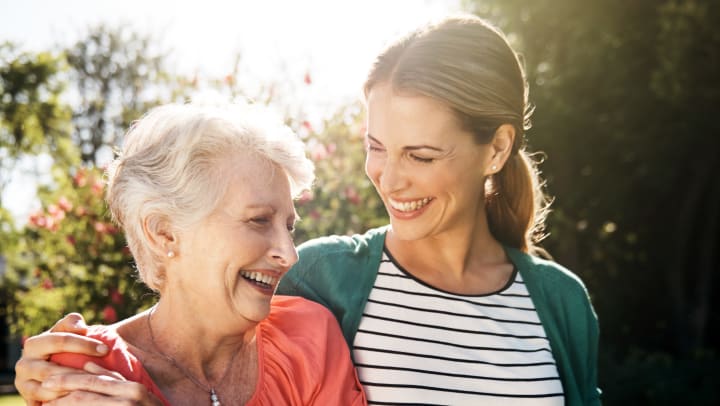In the U.S., 29 percent of adults are currently serving as caregivers, tending to a loved one who is ill or disabled. Whether caring for someone with Alzheimer’s Disease or someone who suffered a stroke, lives with mental illness or has another physical issue, the role of caregiver is a stressful, demanding one. Without help or ample time for self-care, caregiving can cause depression, anxiety, guilt, and burn out.
It doesn’t have to be that way.
November is Caregiver Awareness Month, spearheaded by Mental Health America (MHA). It’s aimed to celebrate caregivers and provide necessary tools to stay stronger mentally and physically while caring for your loved one. It’s also National Alzheimer's Disease Awareness Month, which is also paying homage to helping the caregiver.
“Any exhaustion, stress, sleeplessness, or changes in appetite or behavior by the caregiver should be taken seriously. Ignoring these symptoms can cause your physical and mental health to decline,” according to the National Alzheimer's Association.
The Alzheimer's Association offers signs to watch for caregiver burnout.
Caregiving during Covid-19 adds an additional layer of stress while we all worry about the virus. The first way to stay helpful to your loved one, is to make sure YOU are healthy in mind and body! Start with these tips:
- Build a support network, seek resources and create a plan - it will minimize your stress to know you have a team in place when you need it.
- Organize medical information so it's up to date and easy to find when you take your loved one for medical help.
- Make sure your loved one’s legal documents are in order.
- Take time to schedule your own doctor appointments for your annual checkups - or if you are feeling signs of distress. You may benefit from talk therapy, too.
- Make sure you carve your own time to sleep, eat, rest, take a walk, go for coffee, exercise, get fresh air, listen to music and find time to laugh.
- Seek emotional support from other caregivers. You are not alone and deserve time to talk it out, vent, and chat with others in for advice on how to be your best caregiver self. People like to talk with others who understand what they are enduring.
- Accept offers to help and ask for help when needed! If friends and relatives offer, let them! Whether it’s cooking a meal, running an errand, helping to find resources for assistance, or sitting with your loved one so you can take a mental break, etc.
- Try not to take things personally. For example: Symptoms of diseases like Alzheimer’s can cause your loved one to forget commitments. This is not a reflection of his or her character.
It’s also important, if possible, to take seek respite care - short-term relief for primary caregivers. This can be just an afternoon or for several days or weeks – be it at home, in a healthcare facility, or at an adult day center.
The National Respite Locator Service helps parents, family caregivers, and professionals find resources in their state and local area to match their specific needs. Waltonwood Senior Living communities provide opportunities for short term stay of a minimum of seven days at the community while family members go out of town or need a break. Beaumont Hospital provides information about skilled home nurse visits and hospital sitters to help caregivers.
It takes a team to care for someone who is ill. You don’t have to be alone. With some planning, caregiving demands can ease – creating a healthier and less stressful time for all.


